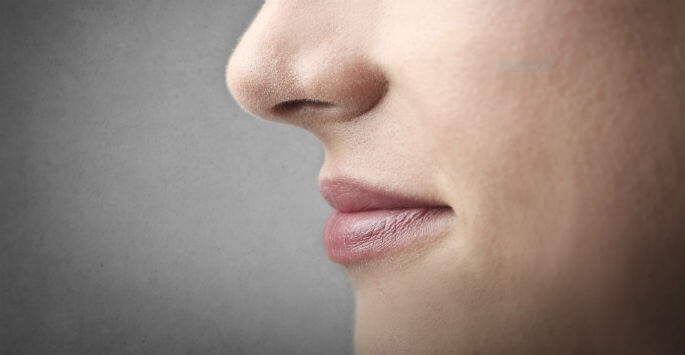Snoring is caused by blocked air passages in your nose and throat, so air doesn’t pass through freely. The soft tissue in the throat vibrates when you breathe causing the sound of snoring. The position of your tongue can also block the air passages and cause snoring. Nose surgery can help some people stop snoring, but it’s important to first know the cause of your snoring.
The most common causes of snoring are:
• Aging – as a person ages, the muscle tone in his or her throat decreases and the throat become narrower
• Being overweight – poor muscle tone and fatty tissue in the throat and around the neck can cause snoring
• Sinus and other nasal problems – blocked nasal passages can make it difficult for air to pass through
• Being male – men naturally have narrower nasal passages than women
• Hereditary issues – such as cleft palate, a narrow throat and enlarged adenoids
• Certain medications – such as tranquilizers that can relax the throat tissue causing snoring
• The sleep position – sleeping flat on your back relaxes and blocks the airways
• Smoking and alcohol use – can relax the throat tissue causing snoring
Nose surgery is usually only used for very severe cases of snoring after other treatments have failed to help.
Surgery is prescribed by doctors to:
• Remove nasal polyps or correct an abnormally shaped septum between the nostrils
• Remove excess soft tissue in the back of the throat that blocks the airways as well as the adenoids and tonsils and other tissues
• Modify the position of the bony structure in the upper airway, so air can flow freely during sleep. This may require more than one surgery
• Put implants of plastic cylinders in the soft palate to make it stiff
Some other treatments for snoring include:
• A machine that produces pressurized air into a mask that you wear over your whole face or just your nose. Called a Continuous Positive Airway Pressure (CPAP) machine, it may be a bit cumbersome, but is very effective for most people.
• A laser treatment to shorten the uvula in the back of the throat called Laser-assisted uvulopalatoplasty (LAUP)
• Somnoplasty, which uses low levels of radiofrequency heat to remove soft tissue and part of the soft palate that vibrates during sleep causing snoring
It’s also important for us to determine if your problem is more serious than ordinary snoring. It could be an indication of an underlying medical problem or sleep disorder such as sleep apnea.
We can help if you have any of these symptoms:
• You are tired all day because your sleep is constantly disrupted by snoring or breathing disorders
• You choke and gasp during sleep and stop breathing for a short time
• You fall asleep during a meal or conversation
You may need a sleep test. If your snoring is not related to sleeping or breathing disorders, we can discuss alternative treatments to stop it.
For more information about nose surgery, contact The Institute of Aesthetic Surgery today to schedule an appointment.


